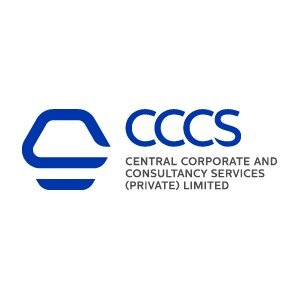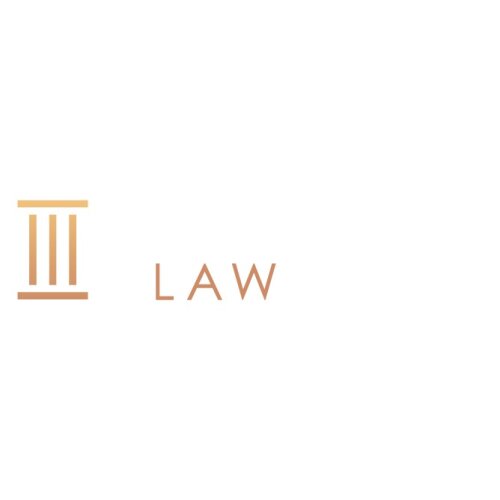Best Debt Capital Markets Lawyers in Colombo
Share your needs with us, get contacted by law firms.
Free. Takes 2 min.
List of the best lawyers in Colombo, Sri Lanka
About Debt Capital Markets Law in Colombo, Sri Lanka
Debt Capital Markets (DCM) in Colombo, Sri Lanka are a critical part of the country’s financial infrastructure, providing companies and government entities with access to medium and long-term financing through the issuance and trading of debt securities such as bonds, debentures, and commercial papers. The Colombo Stock Exchange (CSE) is the primary platform where these instruments are listed and traded. Debt Capital Markets law in Sri Lanka revolves around the rules governing the issuance, offering, trading, and regulation of these fixed income securities. These rules ensure market integrity, investor protection, and smooth functioning of the local capital markets.
Why You May Need a Lawyer
Engaging a lawyer for matters concerning Debt Capital Markets in Colombo may be necessary in several situations, including:
- Structuring and drafting legal documentation for issuing bonds or other debt instruments
- Complying with the Securities and Exchange Commission (SEC) of Sri Lanka regulations
- Advising on the process for listing debt securities on the Colombo Stock Exchange
- Conducting due diligence for investors or issuers
- Representing clients during regulatory investigations or inquiries
- Assisting in dispute resolution with service providers, underwriters, or investors
- Advising on tax implications and cross-border transactions involving debt instruments
- Interpreting local laws to ensure full compliance and avoid penalties
Local Laws Overview
Debt Capital Markets in Colombo are regulated by a comprehensive legal framework designed to safeguard both investors and issuers. Some of the key legislations and regulations include:
- Securities and Exchange Commission of Sri Lanka Act - Sets out the regulatory framework for securities markets
- Colombo Stock Exchange Listing Rules - Stipulate the procedures and requirements for listing and trading debt securities
- Companies Act, No. 7 of 2007 - Governs corporate structures and issuance of debentures by companies
- Trust Ordinance - Relates to the appointment of trustees for debenture issues
- SEC Debenture Issue Guidelines - Provide detailed instructions on disclosure, compliance, and offer procedures
- Foreign Exchange Act, No. 12 of 2017 - Regulates aspects of foreign participation in Sri Lankan debt markets
Frequently Asked Questions
What is a debt security in the context of Colombo’s capital markets?
A debt security is a financial instrument representing a loan made by an investor to an issuer - typically a corporation or government entity. In Sri Lanka, common debt securities include corporate bonds, government securities, and debentures.
Who regulates Debt Capital Markets in Sri Lanka?
The primary regulator is the Securities and Exchange Commission (SEC) of Sri Lanka. The Colombo Stock Exchange (CSE) also sets listing rules and monitors trading on its platform.
Can foreign investors participate in Sri Lankan Debt Capital Markets?
Yes, foreign investors can participate, but they must adhere to limits and procedures outlined by the Foreign Exchange Act and SEC guidelines. Currency conversion and repatriation of funds are subject to Central Bank regulations.
What is the process for issuing a corporate bond or debenture?
Issuers must prepare a prospectus, appoint a trustee, obtain necessary approvals, comply with CSE listing requirements, and fulfill due diligence and disclosure obligations set by the SEC and other authorities.
What is the role of a trustee in a debenture issuance?
A trustee acts on behalf of debenture holders to ensure issuers meet their obligations, manages debenture holder interests, and takes action in case of default.
What are the risks involved in investing in Sri Lankan debt securities?
Risks include credit risk (issuer default), interest rate risk, liquidity risk, exchange rate risk for foreign investors, and regulatory changes.
How can a company list its debt securities on the Colombo Stock Exchange?
A company should meet eligibility and regulatory requirements, submit listing applications, provide required documentation, and obtain CSE and SEC approvals prior to listing its securities for trading.
Are there specific tax rules for income from debt securities?
Interest income from debt securities may be subject to withholding tax or other levies. Both residents and non-residents must comply with Sri Lankan tax regulations. Consult a tax advisor or lawyer for up-to-date information.
What happens if a company defaults on its debt obligations?
If a company defaults, the trustee may initiate legal proceedings on behalf of debenture holders, which can include restructuring negotiations, litigation, or insolvency proceedings as per local law.
Why is legal due diligence important in Debt Capital Markets?
Legal due diligence helps identify legal and regulatory risks, ensures full compliance, and protects the interests of both issuers and investors during a debt capital transaction.
Additional Resources
If you need further guidance or support regarding Debt Capital Markets in Colombo, the following organizations and resources are particularly helpful:
- Securities and Exchange Commission of Sri Lanka (SEC Sri Lanka)
- Colombo Stock Exchange (CSE)
- Central Bank of Sri Lanka
- Institute of Chartered Accountants of Sri Lanka
- Department of Registrar of Companies
- Sri Lankan law firms with a specialty in capital markets
- Chambers of Commerce and industry-related associations
Next Steps
If you require legal assistance related to Debt Capital Markets in Colombo, Sri Lanka, consider the following steps:
- Identify the nature and scope of your issue (e.g. issuance, investment, dispute, compliance)
- Gather all relevant documents, contracts, and communications
- Consult with a qualified lawyer or law firm that specializes in capital markets law
- Prepare a list of questions and objectives for your initial legal consultation
- Stay informed about ongoing regulatory updates and market changes
- Maintain records of all legal and financial transactions for reference
Lawzana helps you find the best lawyers and law firms in Colombo through a curated and pre-screened list of qualified legal professionals. Our platform offers rankings and detailed profiles of attorneys and law firms, allowing you to compare based on practice areas, including Debt Capital Markets, experience, and client feedback.
Each profile includes a description of the firm's areas of practice, client reviews, team members and partners, year of establishment, spoken languages, office locations, contact information, social media presence, and any published articles or resources. Most firms on our platform speak English and are experienced in both local and international legal matters.
Get a quote from top-rated law firms in Colombo, Sri Lanka — quickly, securely, and without unnecessary hassle.
Disclaimer:
The information provided on this page is for general informational purposes only and does not constitute legal advice. While we strive to ensure the accuracy and relevance of the content, legal information may change over time, and interpretations of the law can vary. You should always consult with a qualified legal professional for advice specific to your situation.
We disclaim all liability for actions taken or not taken based on the content of this page. If you believe any information is incorrect or outdated, please contact us, and we will review and update it where appropriate.

















